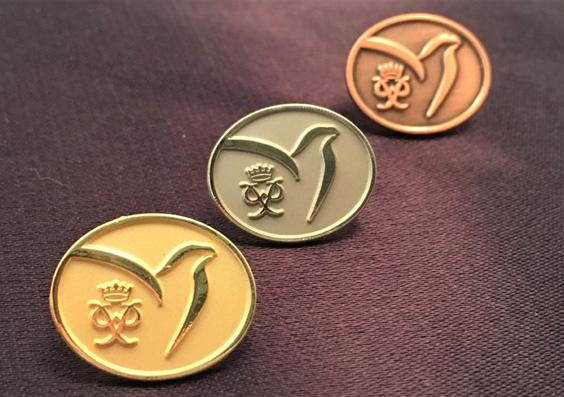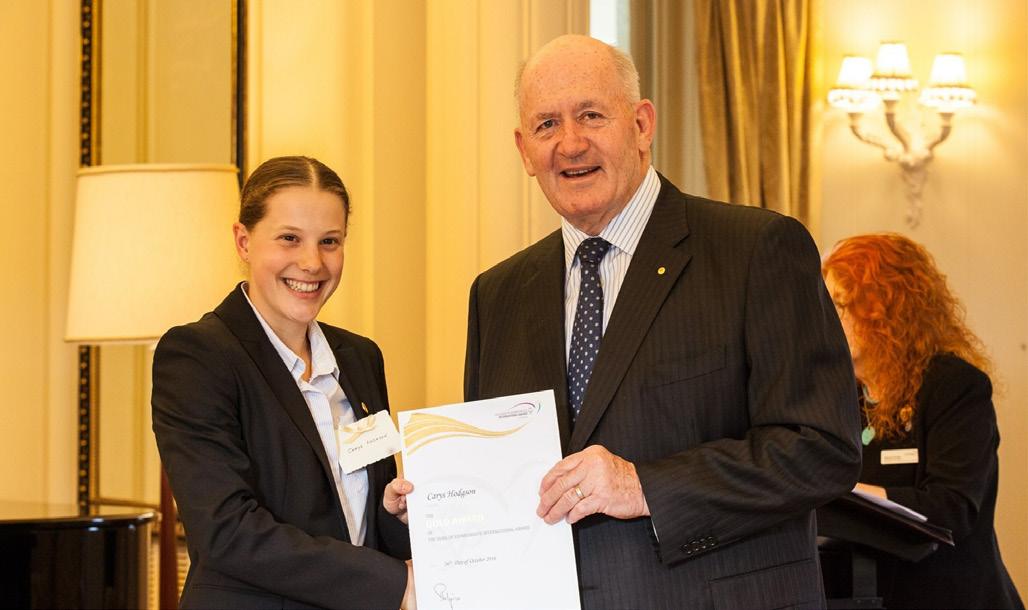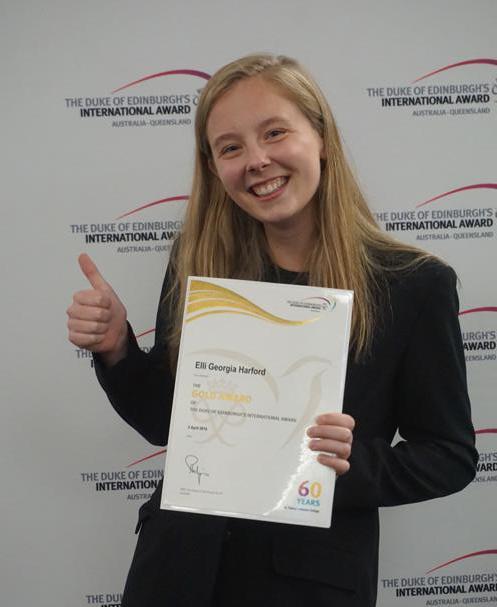
6 minute read
Challenge Accepted
CHALLENGE ACCEPTED: A TRIBUTE TO HRH THE DUKE OF EDINBURGH
ANNE TETLEY-JONES
On Friday 9 April, 2021, Prince Philip, the Duke of Edinburgh, passed away aged 99, two months and two days short of his 100th birthday (on 6 June). The Duke has left a legacy of service and dedication to his Queen, his country and the Commonwealth, of which we in Australia are a part.
In 65 years of public life, it seems that as Prince Philip has been remembered in tributes around the world since his passing, perhaps his greatest, and most enduring, legacy was the establishment of the Duke of Edinburgh Award, now going strong in 144 countries. From its inception, the Duke played an active role, especially in presenting Gold Awards to their recipients, including at Buckingham Palace and around the world, taking time to meet with these young people. The Duke certainly had a great sense of humour and put those around him at ease.
The youth achievement scheme began in the United Kingdom in 1956 with just 7,000 boys and two years later it was extended to girls. Over the last six decades more than eight million people have ‘done their DofE’ and almost half a million youngsters are currently enrolled at either bronze, silver or gold level in the UK alone.
The Duke was a lifelong advocate for young people, believing in each individual’s potential. The Award was designed, and continues today, to encourage personal discovery, self-reliance, commitment, responsibility and service to the community.
The Duke of Ed Award (as it is colloquially known) began in Australia 1959. In that time, over 775,000 young Australians have achieved an Award and over 25,000 young people start an Award each year. The key to the Award is that it is accessible to all – no matter your race, religion, socio-economic or educational background, no matter your physical ability, young people around the world can achieve the Awards through hard work and commitment.
What about the Duke of Edinburgh Award here at St Peters?
St Peters became an Award centre delivering the first Awards in 1984. In the beginning, only a few students participated in the Award, but the numbers continue to grow, with on average 60 students each year starting their Bronze in Year 9.
The very first Bronze Award was achieved in February 1984 by Old Scholar Marita Moore (1985). Marita skipped Silver and went on to Gold which she achieved almost ten years later in 1993.
"It was probably one of the first real challenges I took on in life, but as it has turned out, it may in fact have been the catalyst for me to not shy away from challenges and try new and different things throughout my life! I thought I would gain confidence, meet new people and be exposed to some situations which would take me out of my comfort zone,” Marita explained.
For Marita, completing the Gold Duke of Edinburgh Award had a particularly significant impact on the future direction of her life.
“I would have to say, probably had I not done the DoE Awards I would never have joined the Army Reserve where I served as a Medic for nearly nine years. In the Army Reserve I got to meet and work with some amazing people and travel to unusual places whilst serving our country’s defence efforts.”
Old Scholar, Amanda Miller (1986), also achieved a Bronze in 1984, going on to Silver in 1985 and then Gold in 1986, becoming the first of an elite few at St Peters to achieve all three Award levels.
“The Awards really made a difference in the early resumés. Unemployment was high at the time and the Service component of the Awards made me stand out. Employers really looked at this point of difference.”
Any level of the Award is a challenge, and you need to work hard at it; you have to be motivated to do it yourself. For Old Scholar


Kate Hodgson (2017), the skills and experiences gained through the Gold Award gave her the confidence and drive to achieve goals that would have previously seemed impossible or daunting.
"Having a Gold Award helped me achieve my Fiordland guiding job in New Zealand, I had no professional guiding experience when I first applied but having a Gold Award demonstrated a level of skill and characteristics that the company was wanting. Over the two seasons I spent in Fiordland, my DoE experience was always evident in my actions and decisions.”
Amanda and Marita also believe the Award gave them skills they have used throughout their lives.
Amanda said, "life has adversity but doing things like the DofE teaches you how to overcome them and there are always people worse off than you.”
Whilst Marita explained, “the Award provides a structured course which will take you out of your comfort zone and expose you to new and different experiences, helping to prepare you for the challenges of life ahead!"
The Adventurous Journey component of all levels of the Award certainly takes participants out of their 'comfort zone'. Today, our Bronze participants are supported by the four-day hike in the Ironbark Program. Silver Adventurous Journeys are also undertaken with the support of Ironbark staff. Whilst Gold journeys remain more challenging, there are many opportunities outside school for students to complete this section.
For Amanda, Marita and Kate, their Gold Journeys certainly pushed their physical abilities. Amanda’s bike hike took the group on a ride from Toowoomba to Dalby, on to Kingaroy and finishing at Ironbark. “We had to carry everything.
We couldn’t sit for four days after we finished!” Marita completed a hike on Moreton island with a group of people also completing their Gold AJ. “I still remember having the feeling of being lost in a valley of lantana somewhere on the island for what seemed like an eternity!” Kates’s two solo hikes in Fiordland, New Zealand were a challenge too and set her on a new path. “I have always loved hiking and the outdoors but those first two solo hikes sparked a confidence to undertake all those adventures alone, which is something I continue to do even now. To this day I still revert to my trip planning and navigation skills I learned.”
Where to from here?
In the first decade and a half, 11 Bronze, Silver and Gold Awards were achieved by St Peters students. Many more have been awarded in the past twenty years. St Peters’ students have continued to start their Award in strong numbers. Since its introduction in 1984, 625 students have started a Bronze Award with 98 completing it. Of the 135 students starting Silver, 63 finished their Award and 48 went on to Gold. In total, 28 students have achieved a Gold Award. Over the years, only 20 students have completed all three levels of the Award highlighting just how significant an achievement this is.
In 2010 the Duke, who remained patron of the Award until 2018, said: "It has gone from strength to strength, with employers in every field of industry recognising the value of the experiences gained and the skills and characteristics developed by the young people that take part.”
The work of the Duke of Edinburgh is done. It is for those that remain to take up the challenge and be part of his legacy.
Thanks to Marita Moore (1985), Amanda Miller (1986) and Kate Hodgson (2017) for their contribution to this tribute.










